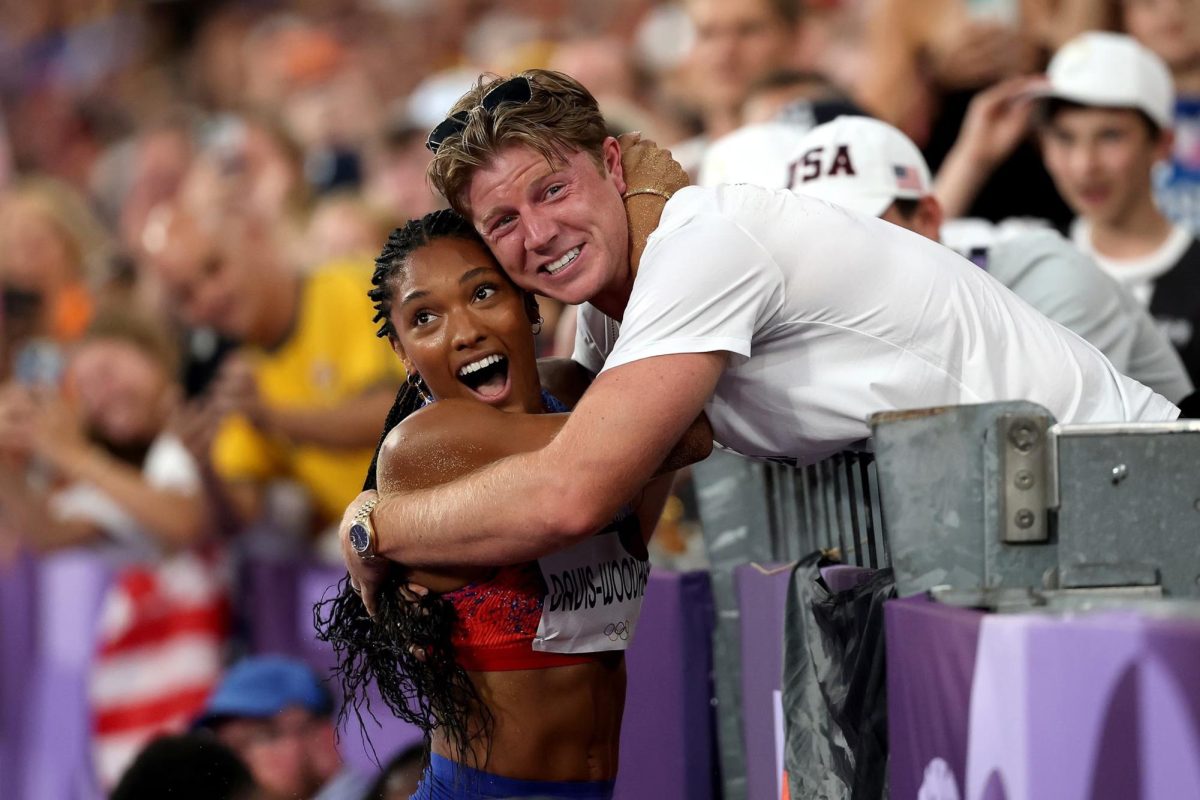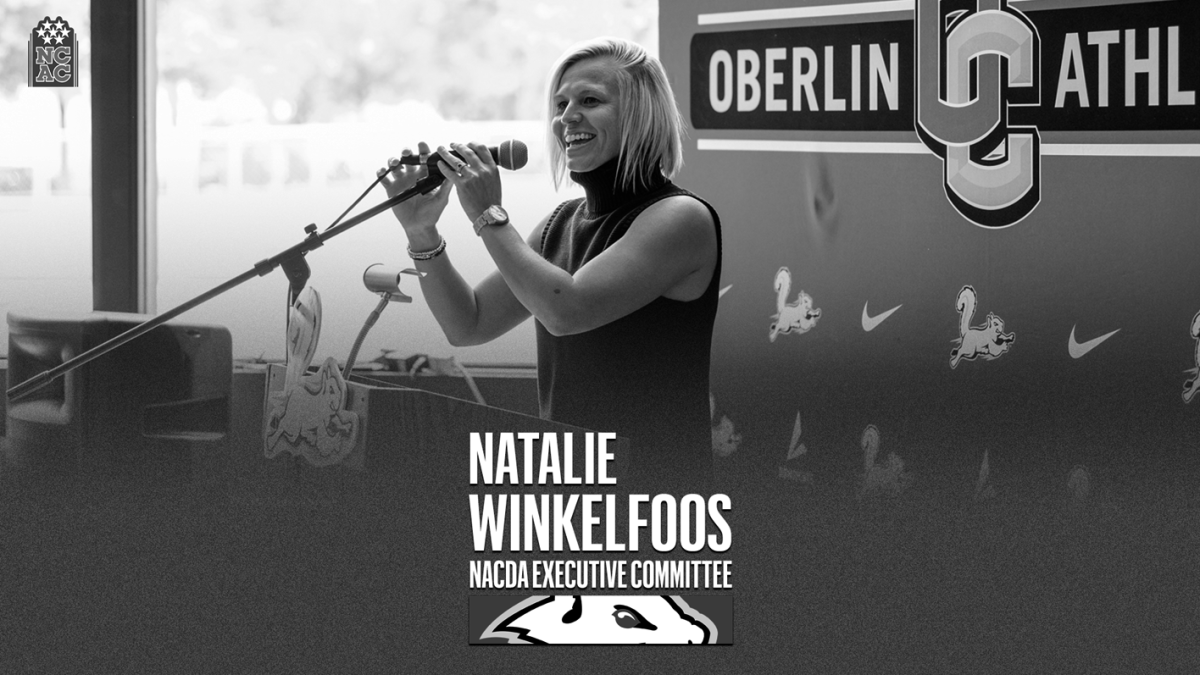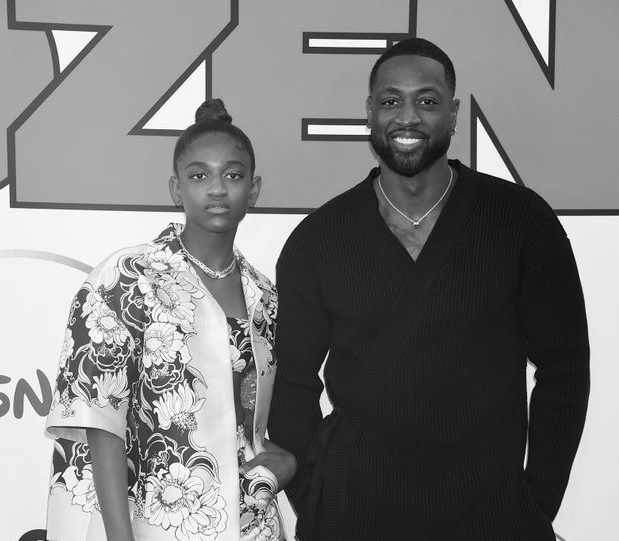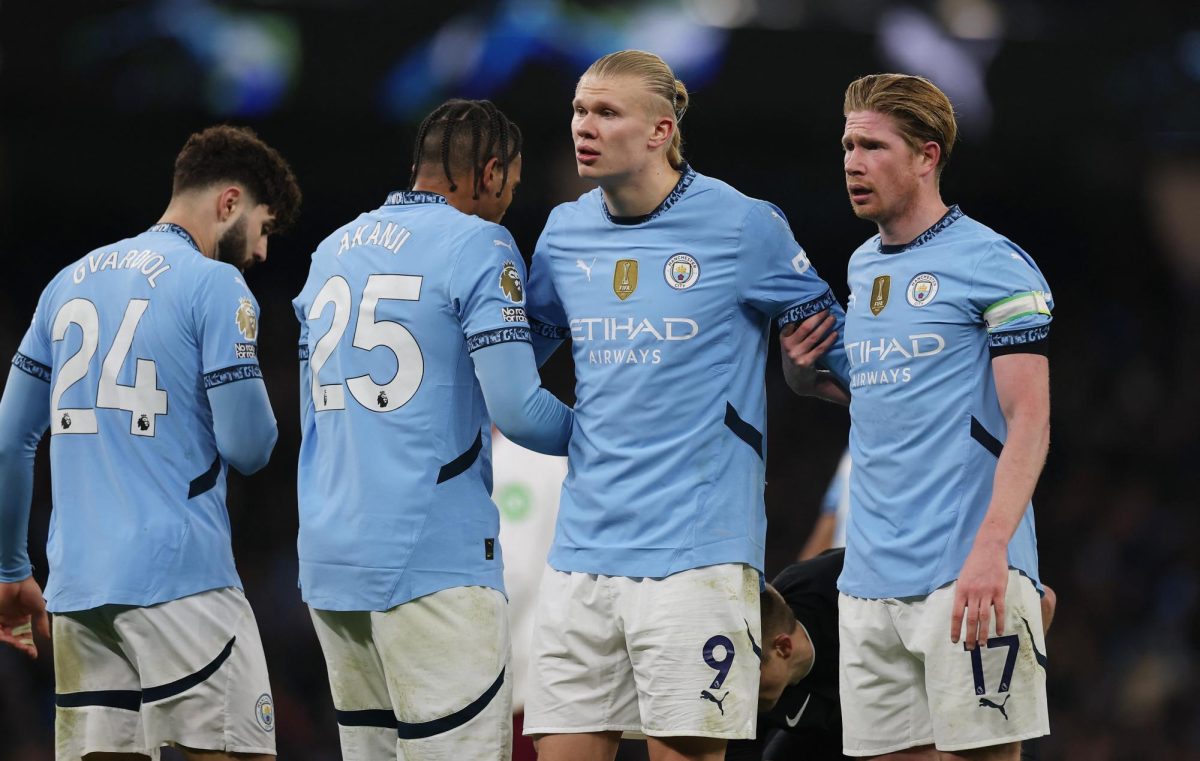At the Paris Olympics in early August, American long jumper Tara Davis-Woodhall took gold in the women’s long jump with an outstanding leap of 7.1 meters. Typically, after winning a gold medal, esteemed athletes head back to their home country for a “victory lap.” This usually includes taking a well-deserved rest to feel the weight of the incredible feat they have accomplished while being applauded by patriotic fans from their home countries.
However, for Tara Davis-Woodhall, this was not the case. Less than a month after her gold medal performance, she found herself back in Paris at the Stade de France. This time, though, she did not not take her place on the Olympic track. Instead, she settled into the first row of the stands to support her husband, Hunter Woodhall, who was representing the United States in the men’s 400-meter T62 Paralympic final.
The couple’s journey began back in 2017, at a track meet in Idaho. At the time, Hunter lived in Utah and Tara in California. After watching Hunter run the 400, Tara felt compelled to introduce herself to him.
“I went up to the track and gave him a hug and I said, ‘I don’t know why I have to do this, but I have to hug you,’” Tara recalled in an interview with IPC.
From there, the couple maintained a long-distance relationship while Hunter attended the University of Arkansas and Tara attended the University of Georgia before transferring to the University of Texas after her first year.
Hunter made his Paralympic debut the year before he met his future wife. In the 2016 Rio games, Hunter won a silver medal in the men’s 200-meter T44 and bronze in the 400-meter T44. Hunter returned for his second Olympic games in Tokyo while Tara made her Olympic debut. Hunter took home bronze in the 400-meter T62.
Coming into the 2024 games, Tara and Hunter had their sights set on winning Olympic gold.
The year prior, in the 2023 World Para Athletics Championships, also held in Paris, one of Hunter’s prosthetic legs broke as he prepared to run the 400.
“From that moment, Tara looked at me, she said ‘We’re going to make changes, we’re going to fix this,’” Hunter said looking back on the moment. “That’s what I did, I made sacrifices, I dialled in, I worked and made sure that would never happen again.”
The couple’s relationship that started as personal had now transformed into a critical part of their professional success.
Now, with his wife anxiously waiting in the crowd, Hunter lined up in the blocks with the chance to win Olympic gold. Hunter was born with fibular hemimelia, a congenital condition where the fibula bone is either short or missing. At 11 months old, both of Hunter’s legs were amputated to improve his quality of life down the road.
The now 25-year-old Hunter was living his best life and not taking a second of it for granted. With the finish fast approaching, he propelled himself across the line at 46.36 seconds, a personal best and, most importantly, a time good enough for Olympic gold.
Moments after crossing the line, Hunter sprinted over to Tara and and the couple embraced just as they had done weeks earlier with Hunter in the crowd.
The couple’s success at the Olympics carried over to their social media account @thewoodhalls on X, formerly known as Twitter, and Instagram. While documenting their preparation and Paris daily routines, the accounts gained tens of thousands of followers in mere weeks. The Woodhalls have made it easy for a new, younger wave of track fans to stay connected to a sport that, outside of the Olympics and Paralympics, has to battle to stay relevant. On top of that, they have inspired a new generation of athletes, both disabled and able-bodied, to redefine what it means to be pushed to the limit to achieve success.
“There are so many great kids coming up in the sport,” Hunter Woodhall said to The Jakarta Post. “I think that is the greatest thing about having so much awareness of the Paralympics, is that we’re going to continue to grow.”










